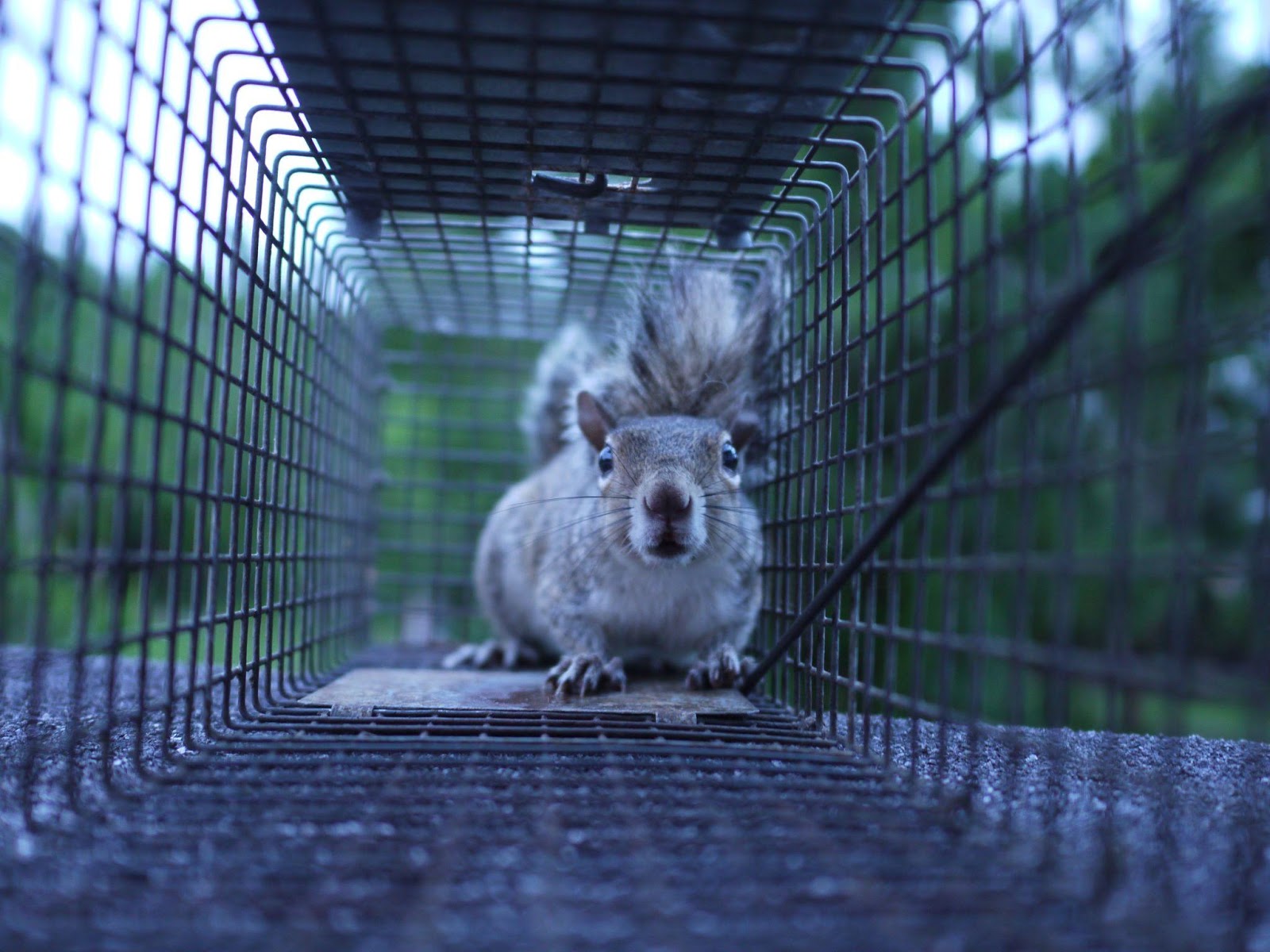
New Orleans humid subtropical climate (with hot and humid summers and mild and short-lived winters) is home to a wide variety of wildlife. For instance, there are about 40 land mammals alone!
But among these diverse life forms, certain animal species are sources of constant trouble for humans around. Several nuisance wildlife exist in New Orleans. Examples include snakes, opossums, rats, nutria, armadillos, and others.
However, in this post, we focus our attention on the two most common: raccoons and squirrels. Well explore their physical characteristics, the damage they cause, and how you can prevent them from your yard.
Lets dive right into it.
Raccoons
Appearance
Raccoons are mid-sized mammals that are about 2-3 feet long. Their bodies are round, stocky, and covered with furs colored iron-gray to blackish with brown overtones. However, raccoons are best known for their black mask of fur around their eyes. This is why they are referred to as masked bandits. Another prominent feature is the black rings around their furry tail.
Damages caused by raccoons
Raccoons are highly intelligent and curious creatures, but they are also destructive. They constitute a nuisance to New Orleans homeowners. Here are some examples:
- Damage in attic
As adept climbers, raccoons can gain access into the attic through vulnerable spots. Once they get in, they will rip off the insulation, chew on wires, pipes, and other materials to build their nest. Whats more, theyll pollute the entire space with their droppings and urine.
- Risk of diseases
Raccoons are also carriers of several zoonotic diseases, including rabies, canine distemper, raccoon parvoviral enteritis, and many others. Just in January of 2021, Louisiana Wildlife and Fisheries noted that sick, erratic raccoons were roaming New Orleans and that these animals can be deadly to pets.
- Damage to plants
As omnivores, raccoons arent picky eaters. If they gain access to your garden, they will chew on plants, fruits, and vegetables before you get to do so.

How to prevent raccoons
Here are some tips to keep in mind:
- Eliminate easy access to food
Food is one of the major attractants of raccoons to New Orleans properties. Ensure that you deny them access to food. Clear away seeds from under your birdfeeder. Protect the plants in your garden. Take your pet food indoors. Remove stagnant water from your yard. Secure your trash can properly. And so on.
- Eliminate access to shelter
First off, seal all potential entry holes into your home. Ensure there are no vulnerable spots around your roof area. Install a chimney cap. Ensure theres no way for raccoons to get underneath your crawlspace. And if possible, install a fence around your property.
How to remove a raccoon
Exclusion and trapping are the preferred methods for raccoon removal. However, dealing with a raccoon infestation requires an adept understanding of raccoon behavior. Thats why its wise to bring in a professional. Whats more, thats the only way to ensure your safety. You can learn more about the raccoon removal process at pestanimal.com.
Squirrels
Appearance
Squirrels are generally small rodents with slim bodies, bushy tails, and large eyes. The color of their fur ranges from gray to yellow to brown, or even black. New Orleans has two major species of squirrels: gray squirrels and fox squirrels.

Damages caused by squirrels
- Damage to properties
To keep the length of their incisors in check, squirrels need to constantly chew on objects. Hence, a squirrel in your attic will chew on wood, pipes, wires, and insulation. Damaged insulation reduces the heating efficiency of your home, just as damaged wires cause a serious fire hazard.
- Risk of diseases
The more common diseases carried by squirrels include plague, tularemia, typhus, and ringworm.
- Destruction of garden
Squirrels love fruits, nuts, and vegetables. This makes your garden an ideal place for them to feast.
How to prevent squirrels
The best way to avoid a squirrel infestation is to prevent it from happening. Squirrel prevention can be attained through the following means:
- Eliminating access to food.
Ensure that your garden is well protected to deny squirrels access. Clear away bird seeds from underneath your bird feeder. Take your pet food inside, especially at night.
- Seal entry holes
Ensure that there are no entry holes that squirrels can pass through your roof. Cut off tree branches overhanging your roof to deny squirrels access to your roof area. Also, install a chimney cap.
- Eliminate hiding spots
Trim tall bushes from your yard. Remove abandoned objects from your yards. Ensure that your surroundings are clean at all times.
- Use repellents
Certain repellents like peppermint, mothball, and the urine of predators can be used to keep squirrels at bay. However, they have to be constantly reapplied to maintain their effectiveness.







